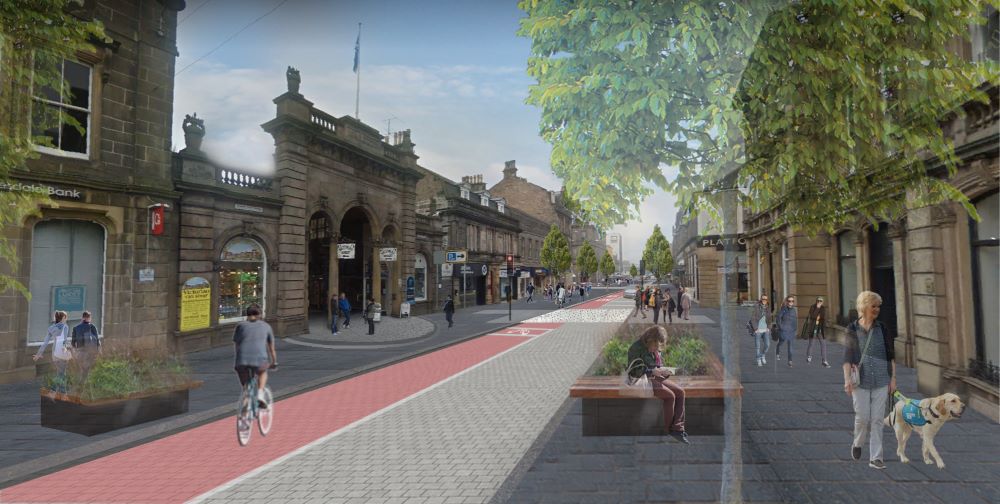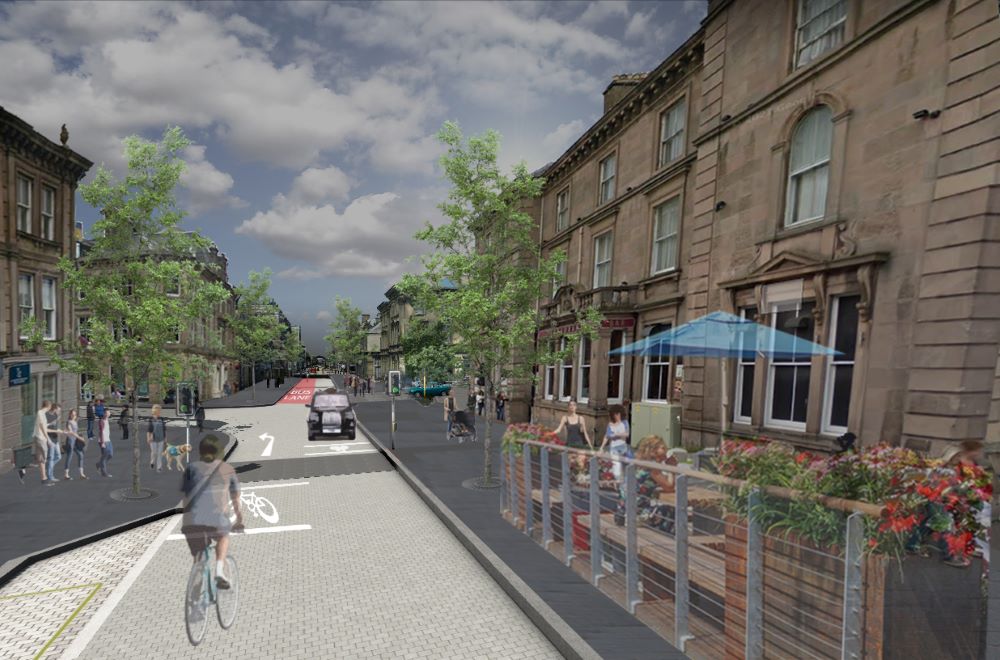
Inverness is making changes for a cleaner, greener city
The Highland Council is about to make a decision that could shape the future of the city centre of Inverness, making it a better place to live and spend time.
In August, the Inverness Area Committee within Highland Council will be voting on new plans for the city’s Academy Street. The proposal is to increase the pavement size along the street, and introduce a bus lane – this will cut traffic, reduce air pollution, and make this area of Inverness a greener and more welcoming place.

Transport is Scotland’s biggest source of climate emissions, and cars are by far the biggest chunk of that. When we take a little space away from cars in the most built-up areas, we reclaim space for all kinds of purposes: walking, wheeling, cycling, street trees, rain gardens, outdoor seating, food stalls, parks and more become possible when we stop prioritising cars.
Many cities are waking up to the possibilities that are presented by making decisions like this one. In Scotland, Glasgow’s George Square has been pedestrianised and the green space is planned to be extended, which is a really positive step for the city.
If we look further afield, we see that Scotland’s cities are currently quite far behind. Paris has made a remarkable shift recently by pedestrianising parts of the city and making cycling safer. Since 1990, driving within the city limits has been reduced by 45%, while cycling has increased tenfold and journeys by public transport have increased by 30%.
Other cities such as Barcelona, Ghent and Oslo have taken huge steps to take space away from cars and give more space to people.
These changes aren’t just better for public health and climate emissions; they’re a huge boost to local economies. When more people are walking and spending time in a city, there is more footfall for local shops. When city centres are being used as through-routes, local businesses suffer.

These changes will also improve the air quality in Inverness. In our analysis of air pollution in 2022, we found that Academy Street, which is one of the most polluted streets in Scotland, had barely improved from the previous year, which the air quality in many of Scotland’s cities got better. The lack of action in Inverness means that people who live and work there are still having to breathe toxic fumes.
People in the city have been coming together to push for change, and the council are listening.
If the committee votes through the changes next week, this could be the start of some great changes in Inverness. The city will become a better place to spend time, and its residents will finally begin to breathe easier.
